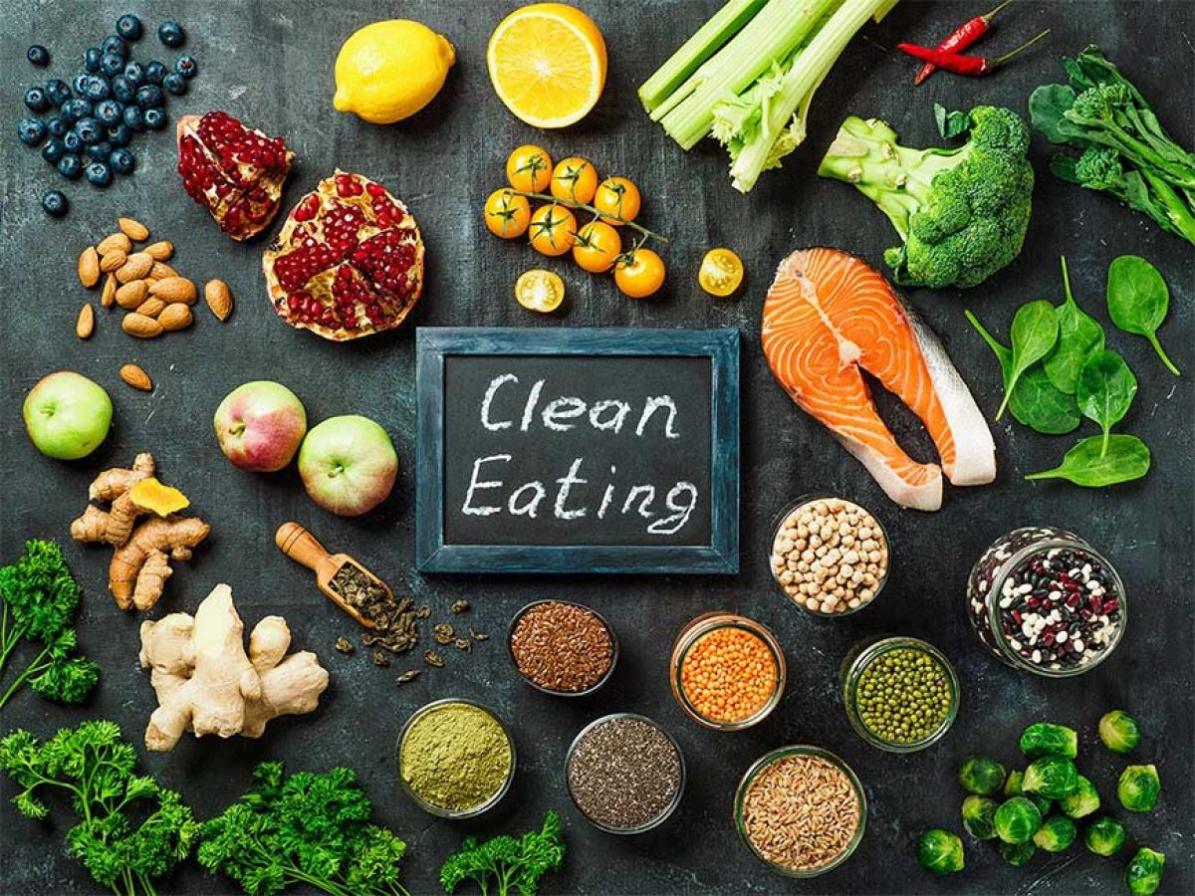How Can I Make Sure I'm Getting All the Nutrients I Need on a Clean Eating Diet?
Clean eating has gained popularity as a healthier approach to nutrition. However, concerns arise about whether it provides all the essential nutrients the body needs. This article explores the challenges and strategies for ensuring nutritional adequacy on a clean eating diet.

Definition Of Clean Eating
Clean eating emphasizes consuming whole, unprocessed foods, avoiding refined sugars, artificial ingredients, and processed foods. It promotes a diet rich in fruits, vegetables, lean proteins, and whole grains.
Benefits Of Clean Eating
- Improved overall health and well-being
- Reduced risk of chronic diseases, such as heart disease, obesity, and type 2 diabetes
- Increased energy levels
- Better mood and cognitive function
- Weight management
Challenges Of Clean Eating
- Limited food choices, especially processed and convenient foods
- Potential nutritional deficiencies if not planned carefully
- Higher cost compared to processed foods
- Time-consuming meal preparation
Ensuring Nutritional Adequacy On A Clean Eating Diet
Understanding Macronutrients And Micronutrients
A balanced diet includes macronutrients (carbohydrates, proteins, and fats) and micronutrients (vitamins and minerals). Macronutrients provide energy and building blocks for the body, while micronutrients support various bodily functions.
Importance Of A Balanced Diet
- Variety in food choices ensures a wide range of nutrients.
- Meeting daily nutritional requirements supports optimal health.
Strategies For Meeting Nutritional Needs
Planning Meals And Snacks
- Incorporate a variety of food groups in each meal.
- Consider nutrient density when selecting foods.
- Meal prep for convenience and to avoid impulsive choices.
Consuming Nutrient-Rich Foods
- Fruits and vegetables: Provide vitamins, minerals, and fiber.
- Lean proteins: Essential for muscle growth and repair.
- Whole grains: Rich in fiber, vitamins, and minerals.
- Healthy fats: Found in nuts, seeds, and avocados.
Limiting Processed Foods And Added Sugars
- Read food labels to identify processed foods and added sugars.
- Avoid excessive consumption of processed foods.
Incorporating Nutrient-Dense Snacks
- Nuts and seeds: Provide healthy fats, protein, and fiber.
- Yogurt: Rich in protein, calcium, and probiotics.
- Whole grain crackers: Offer fiber and complex carbohydrates.
- Fruits and vegetables: Convenient and nutrient-packed snacks.
Addressing Specific Nutrient Concerns
Calcium
- Sources: Dairy products, leafy green vegetables, fortified foods.
- Importance: Essential for bone health and muscle function.
Iron
- Sources: Red meat, poultry, fish, beans, lentils.
- Importance: Vital for red blood cell production and oxygen transport.
Vitamin D
- Sources: Fatty fish, eggs, fortified foods, sunlight exposure.
- Importance: Crucial for bone health, immune function, and mood regulation.
Supplements And Fortified Foods
When To Consider Supplements
- Specific nutrient deficiencies diagnosed by a healthcare professional.
- Limited access to nutrient-rich foods due to dietary restrictions or geographic location.
Choosing High-Quality Supplements
- Consult with a healthcare professional for guidance.
- Read supplement labels carefully for dosage and potential interactions.
Fortified Foods
- Benefits: Provide essential nutrients that may be lacking in certain foods.
- Examples: Breakfast cereals, orange juice, milk, yogurt.
Importance Of A Balanced And Varied Diet
A clean eating diet can provide all the essential nutrients the body needs, but careful planning and attention to food choices are crucial. By incorporating a variety of nutrient-rich foods, limiting processed foods, and addressing specific nutrient concerns, individuals can enjoy the benefits of clean eating while maintaining optimal health.
Strategies For Meeting Nutritional Needs On A Clean Eating Diet
- Plan meals and snacks to include a variety of food groups.
- Choose nutrient-dense foods over processed and refined options.
- Limit consumption of processed foods and added sugars.
- Incorporate nutrient-dense snacks throughout the day.
- Address specific nutrient concerns, such as calcium, iron, and vitamin D, through food choices or supplements if necessary.
Addressing Specific Nutrient Concerns

Some nutrients may require special attention on a clean eating diet. These include:
- Calcium: Found in dairy products, leafy green vegetables, and fortified foods.
- Iron: Present in red meat, poultry, fish, beans, and lentils.
- Vitamin D: Obtained from fatty fish, eggs, fortified foods, and sunlight exposure.
Encouraging A Healthy Lifestyle
A clean eating diet is just one aspect of a healthy lifestyle. Regular physical activity, adequate sleep, and stress management are also essential for overall well-being. By adopting a holistic approach to health, individuals can optimize their physical and mental health.

YesNo

Leave a Reply